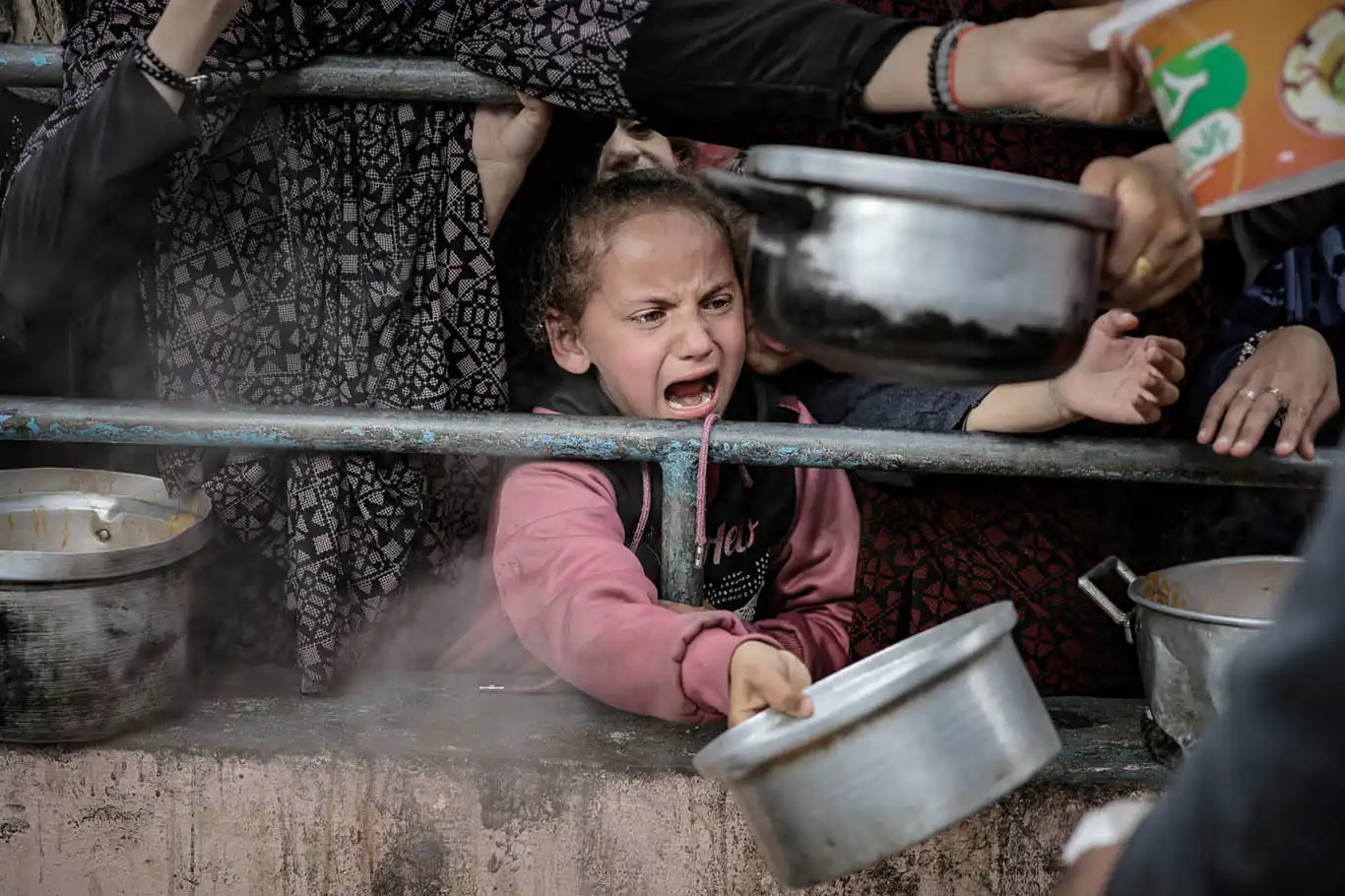Amnesty slams Israel’s aid blockade in Gaza, warns of imminent famine


Amnesty International has issued an urgent warning that Palestinians in the Gaza Strip are facing mass starvation, calling for an immediate and permanent ceasefire and the unhindered entry and distribution of humanitarian aid.
In a statement posted on X on Wednesday, the organization condemned the Israeli military for blocking aid deliveries, bombing shelters, and using food, water, and medicine as weapons of war, actions it claims contribute to a deliberate strategy of starvation.
The crisis has escalated to unprecedented levels, with the entire 2.1 million population of Gaza facing acute food insecurity, according to the Integrated Food Security Phase Classification (IPC). A recent IPC report projects that 470,000 people—22% of the population—are experiencing catastrophic hunger (IPC Phase 5), with famine imminent across the region if current conditions persist. The report highlights a 300% surge in childhood malnutrition cases in northern Gaza since May 2024, with 71,000 children and 17,000 pregnant or breastfeeding mothers requiring urgent treatment for acute malnutrition.
Over 100 international humanitarian organizations have joined the call for global governments to act, demanding the immediate opening of all land crossings into Gaza, full access to food, clean water, medical supplies, shelter materials, and fuel, and the reinstatement of a UN-led humanitarian coordination mechanism. These groups have criticized the Israeli-controlled “Gaza Humanitarian Foundation” (GHF), established in May 2025 with U.S. backing, for failing to deliver adequate aid. The GHF, intended to bypass traditional UN-led aid operations, has been accused of politicizing aid distribution and exacerbating the crisis, with reports of over 875 deaths linked to its militarized distribution sites since late May.
The Norwegian Refugee Council (NRC) reported that its aid stocks in Gaza were depleted by April 2025, with some staff members suffering from hunger. The NRC accused Israel of paralyzing its operations, preventing the organization from fulfilling its humanitarian mandate. The UN World Food Programme (WFP) and UNICEF have also warned of a collapsing humanitarian system, with WFP’s food stocks exhausted by April 25, 2025, and UNICEF’s supplies for treating malnutrition critically low. Over 116,000 metric tons of food aid—enough to feed one million people for four months—remains stranded at border crossings due to Israel’s blockade, imposed since March 2, 2025.
The blockade has led to a 3,000% spike in food prices, with a 25-kilogram sack of wheat flour now costing between $235 and $520. Families are resorting to extreme measures, such as scavenging for sellable rubbish, though many report that even this resource is depleted. The UN reports that 18,741 children have been hospitalized for acute malnutrition in 2025 alone, though access to hospitals is severely limited due to ongoing bombardment, displacement, and a decimated healthcare system. A doctor at Nasser Hospital in Khan Younis described treating nine children for malnutrition-related complications as of June 30, 2025, noting unprecedented cases of nutritional edema and muscle wasting.
UNRWA, the UN agency for Palestinian refugees, has reported that its staff are fainting from hunger, with food prices in Gaza increasing 40-fold. The agency has been banned from bringing aid into Gaza for over four months, despite having enough food stockpiled outside the territory to feed the entire population for three months. UN experts have declared that famine has spread across Gaza, citing the deaths of children like six-month-old Fayez Ataya and nine-year-old Ahmad Abu Reida from malnutrition in May and June 2024. They described Israel’s actions as a “targeted starvation campaign” constituting genocidal violence.
The crisis is compounded by the destruction of critical infrastructure, with 70% of Gaza’s water infrastructure damaged or destroyed, leading to widespread dehydration and infectious diseases like diarrhea and hepatitis. The blockade, coupled with ongoing military operations, has forced over 680,000 people into new displacements since March 2025, with less than 18% of Gaza remaining outside Israeli-militarized zones. Humanitarian workers report that attacks on civilians attempting to access food have resulted in mass casualties, with 674 deaths near GHF sites and 201 others near UN-run convoys as of July 13, 2025.
Israeli officials have publicly denied intentional starvation, citing security concerns over Hamas diverting aid, though comprehensive audits show less than 1% of aid has been lost to theft. However, some Israeli military officers have privately acknowledged the severity of the hunger crisis, warning that Gaza is weeks away from widespread starvation unless aid flows are restored. Far-right Israeli Finance Minister Bezalel Smotrich has openly stated that blocking aid is “justified and moral” until Israeli hostages are released, a position condemned by humanitarian groups as a violation of international law.
The international community faces mounting pressure to act. UN Secretary-General António Guterres has called the situation “alarming,” emphasizing that most children in Gaza face extreme hunger. Humanitarian leaders, including WFP’s Cindy McCain and UNICEF’s Catherine Russell, have urged all parties to prioritize civilian needs and allow immediate aid access, warning that without urgent action, famine will claim countless lives. (ILKHA)
LEGAL WARNING: All rights of the published news, photos and videos are reserved by İlke Haber Ajansı Basın Yayın San. Trade A.Ş. Under no circumstances can all or part of the news, photos and videos be used without a written contract or subscription.
The Gaza Strip continues to reel under relentless Israeli bombardment, as the Palestinian Ministry of Health reported that hospitals across the besieged enclave received the bodies of 113 new martyrs and treated 534 wounded civilians in the past 24 hours alone.
A firefighting helicopter crashed into the sea on Tuesday while attempting to scoop up water to battle an intense wildfire near Athens. All three crew members were rescued and transported to a nearby hospital, officials confirmed.
Dr. Abdul Bari Omar, CEO of Da Afghanistan Breshna Sherkat (DABS), held a video conference with Uzbekistan’s Minister of Energy, Jurabek Mirzamuhammadov, to discuss strengthening bilateral cooperation on electricity and energy infrastructure.
Columbia University has expelled nearly 80 students for their peaceful involvement in pro-Palestine protests, marking one of the harshest anti-dissent crackdowns in recent American academic history.